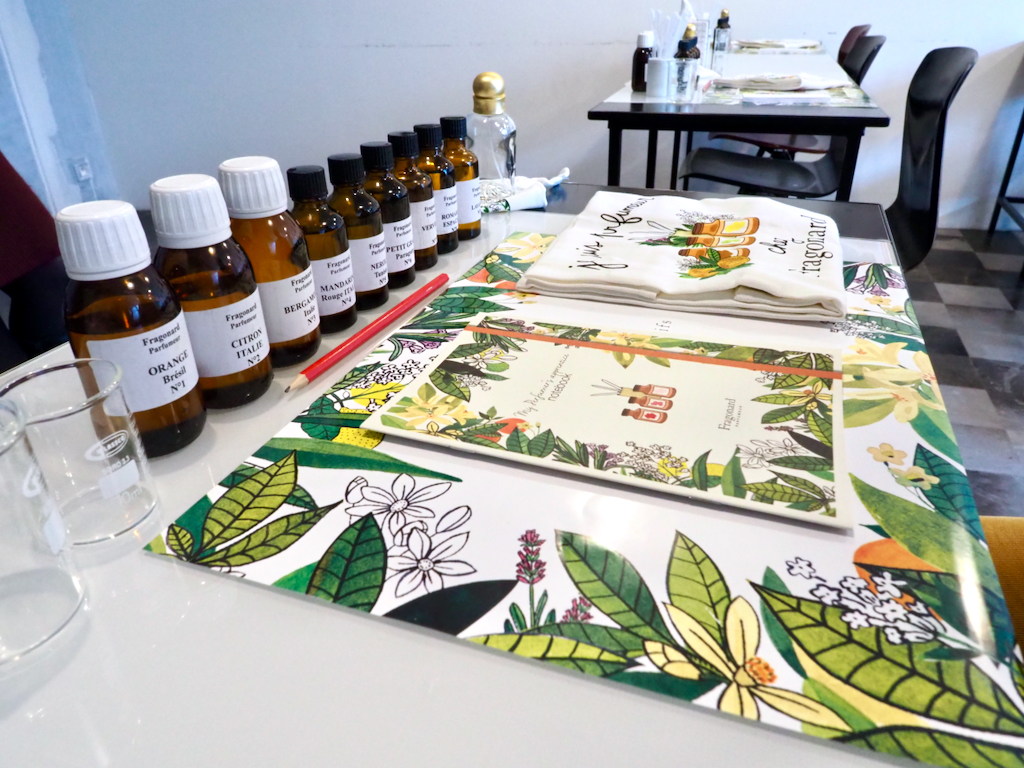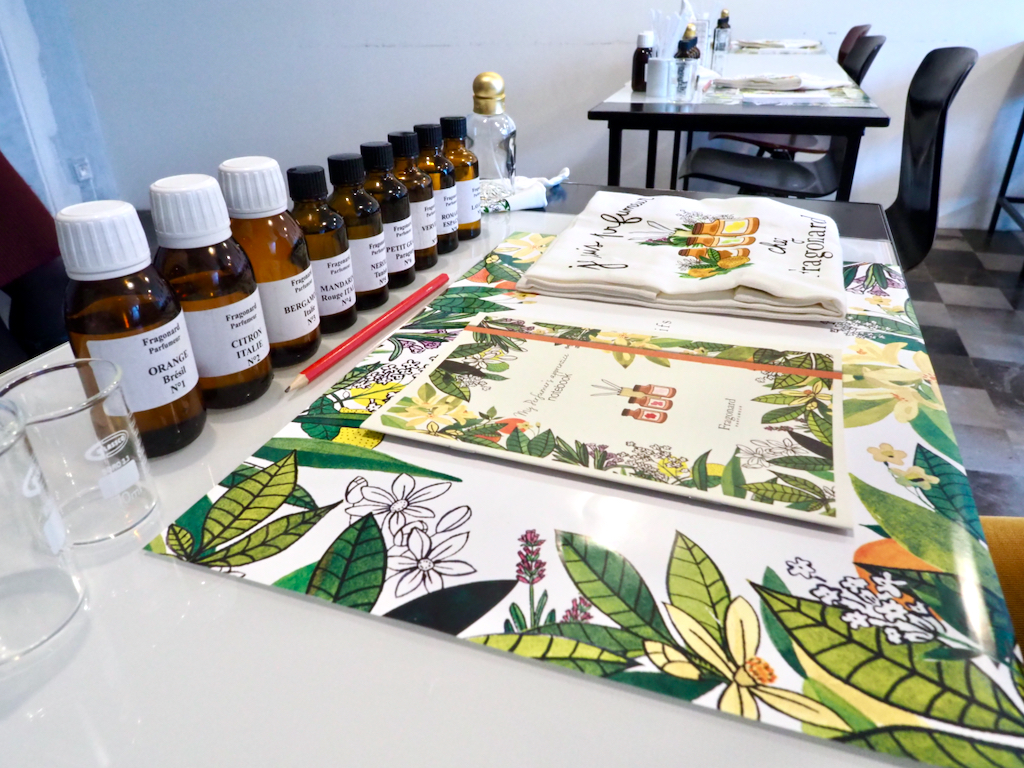
Columbia Hillen
Autumn is a perfect time to visit Paris – for summer in the City of Light can be as hot as Hades itself – and there’s no better occasion to experience one of its most iconic attractions, perfumeries.
But rather than just enjoy one of the city’s most captivating senses, why not create your own with the help of expert guidance?
Two perfumeries offer this golden opportunity, one a niche, independent perfumery, Maison des Parfums Candora, established by individuals with a sensorial passion and located in the heart of Paris, guided by general manager, Emmanuel Frossard, and two perfumers, Isabelle Ferrand and Mélanie Leroux. And the other, a well-known international, family-operated company, called Fragonard.
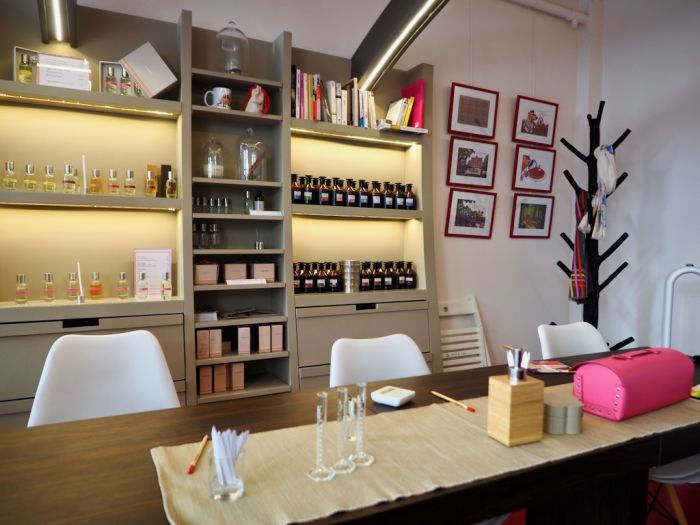
Columbia Hillen
Maison des Parfums Candora, opened in 2017, is located a stone’s throw from the banks of the Seine, Notre-Dame de Paris cathedral and the Ile Saint- Louis. Here, in addition to creating your own perfumes in special workshops with professional guidance, you will also find diverse products such as perfumes, toilet waters, scented candles, game books and other scented surprises. Candora perfumes can also be ordered from its online perfumery.
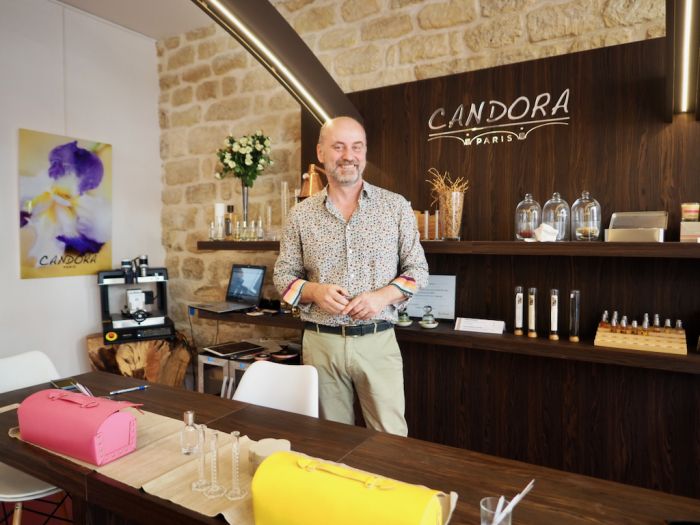
Emmanuel Frossard co-founder and manager Candora. Photo by Columbia Hillen
Frossard, co-founder of Candora, proudly showed my companion and I his company’s new location which can host up to 50 people for perfume-making workshops. Frossard decided to start the company after a career with multinationals such as L’Oreal, Moet Hennessey, Louis Vuitton and Johnson & Johnson. “I like to combine opposites, the warmth of wood and the softness of flowers,” he said describing his favorite scents. “I wear cedar and iris, sometimes vetiver and lavender. It’s amazing to see how two perfumes blend together to make a third. I often take the image of color. Blue and yellow give rise to green in which we perceive them without being able to clearly identify them.”
Visitors at Candora create their very own perfumes on-site in 10 to 30 minutes or participate in focused, two-hour perfume creation workshops, open to everyone. It is a fascinating olfactory experience.
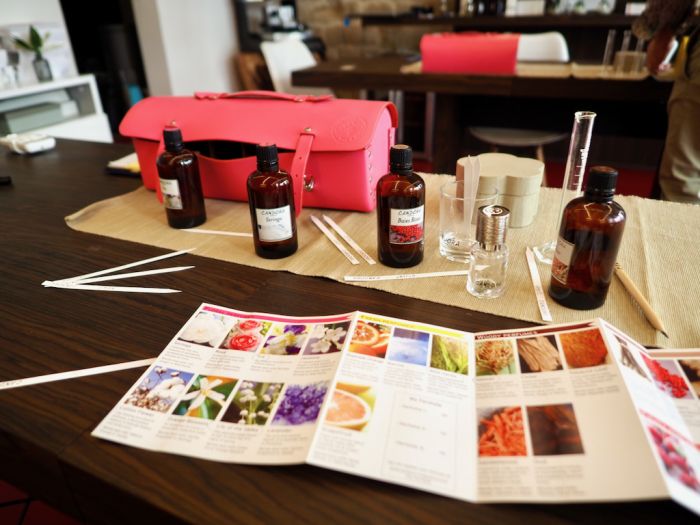
Columbia Hillen
Interestingly, Candora has also developed an innovative project with novelist, Ingrid Astier, to take visitors on a sensory journey through the small and large stories behind the twenty-one different scents of the Candora collection, including damask rose, oud, bigarade orange and vetiver, that make up its Olfactory Library. Texts in a special 48-page hardcover book are illustrated with photos by Delphine Constantini and accompanied by a metal box containing the twenty-one scents in mini 3ml bottles, all numbered in a playful manner. Clients then exercise their olfactory memories, searching the ‘Scents Library’ and entering answers to questions on a page on the site, before discovering their overall score.
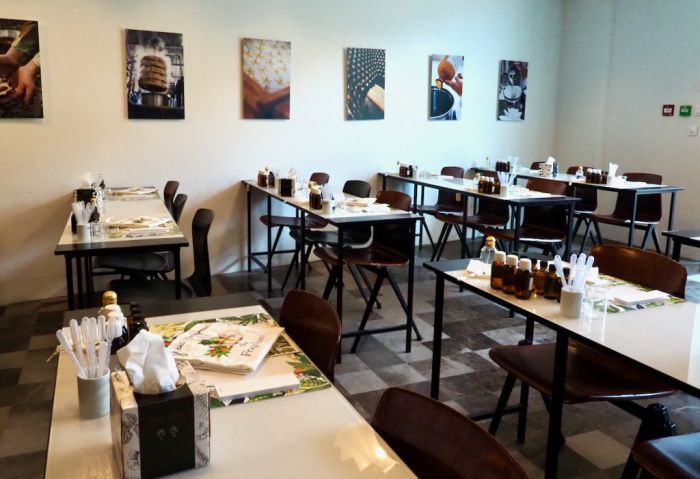
Columbia Hillen
Fragonard, an older perfumery, is based in Grasse on the French Riviera, a charming town renowned for its long-established perfume industry. With a microclimate favoring flower-growing, the region produces over two-thirds of France’s natural aromas for perfume and food, amounting to more than 600 million euro a year. To understand more about the sweet-smelling scent segment that employs thousands of people, a visit to one of its perfumeries such as Fragonard is a must.
Founded in 1926 by a notary, Eugène Fuchs, and now run by three of his great grand-daughters, Anne, Agnès and Françoise Costa, Fragonard is one of the oldest perfumeries in France.
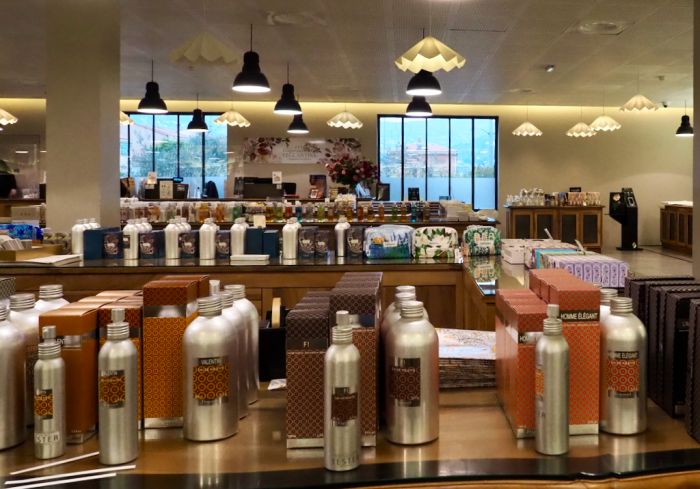
Columbia Hillen
“We want Fragonard to remain a small house, with its strong family values,” Agnès said in an interview in Monaco Tribune, adding that globalization sadly had standardized consumer behavior. “Grasse is currently experiencing a new golden age. When I started working, New York, Geneva and Paris still shared most of the perfumery sector.” Since then, LVMH, Lancôme and even Chanel have invested in Grasse, restoring it to its former glory. In 2018, the know-how of Grasse in the field of perfumery granted it passage on to UNESCO’s heritage list. “The influence we had – my sisters and I - helped transform a small house with a tourist vocation, which essentially attracted crowds of curious people wishing to discover a perfume factory, into a brand, with its own shops, its own world,” she recalled.
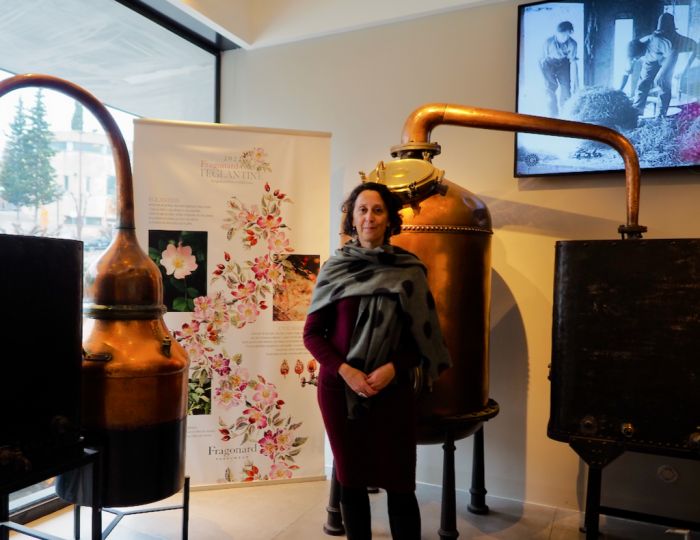
Diane Rognoni, Fragornard. Photo by Columbia Hillen
Not only does it make fragrances, Fragonard also hosts two museums, one on perfumes, the other on costumes and jewellery.
Constant innovators, the family also developed the idea of inviting people to come to their workshops to make their very own personal perfumes. My companion and I did just that, spending two fascinating hours in Grasse under the patient tutelage of Diane Rognoni, an author passionate about art and history, pipettes in hand, aprons tied around our waists, we sniffed and mixed essential oils to create our own eau de perfumes.
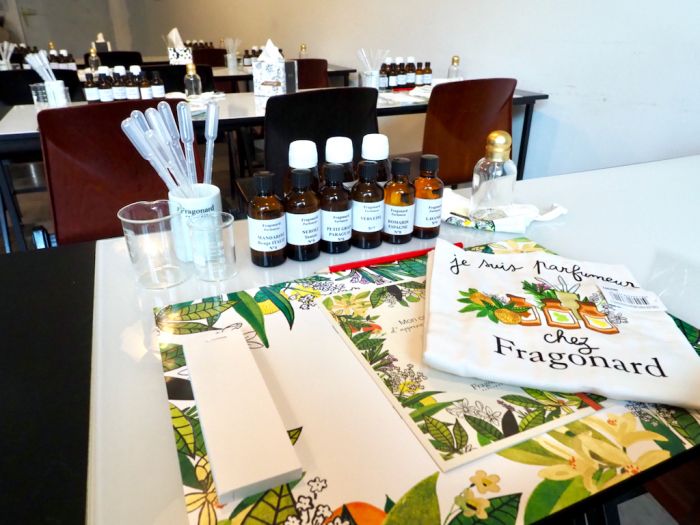
Columbia Hillen
For visitors to Paris, the good news is that Fragonard also hosts workshops at its Musée du Parfum located in the Opéra Garnier quarter. Here it welcomes both amateur perfume lovers and connoisseurs on a free guided tour, unveiling the manufacturing secrets of perfume and its extraordinary history from ancient Egypt to the 20th century, with artefacts such as kohl pots, pomanders, vinaigrettes, perfume burners, pots-pourris, travel sets, smelling salt bottles and precious flasks.
In its ‘perfumer’s apprentice workshop,’ visitors create their own personal Eau de Cologne. Led by a perfumery expert, the workshop lasts 90 minutes, after which visitors head home with their own creations presented in an elegant, personalized 100 ml bottle and pouch, a diploma signed by the teacher and your perfumer’s apprentice apron.
With perfumes being synonymous with Paris, no visit to the French capital would be complete without a visit to one of these two leading ‘centers of scent.’

